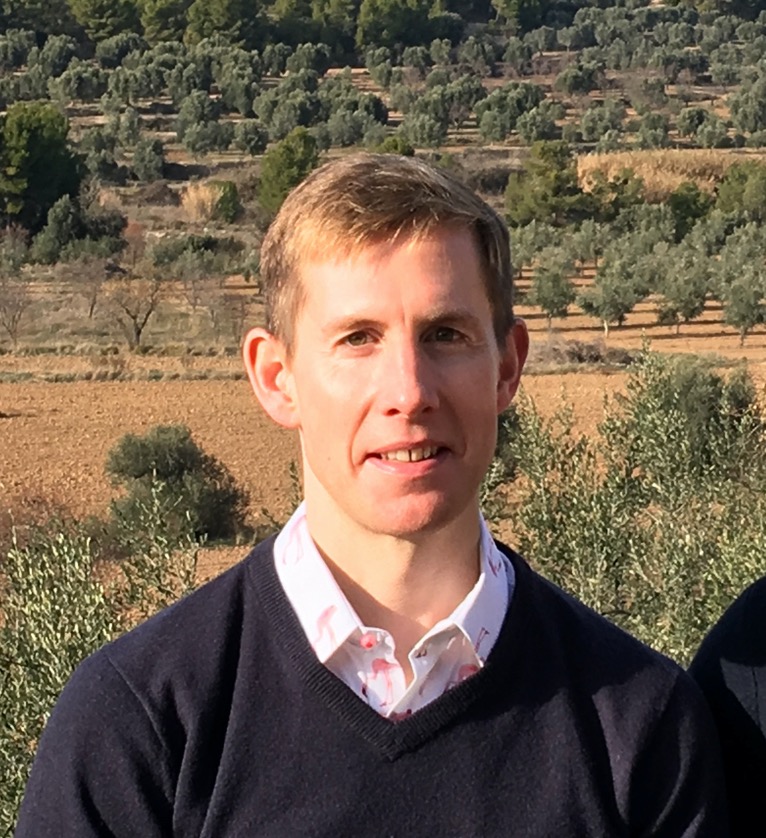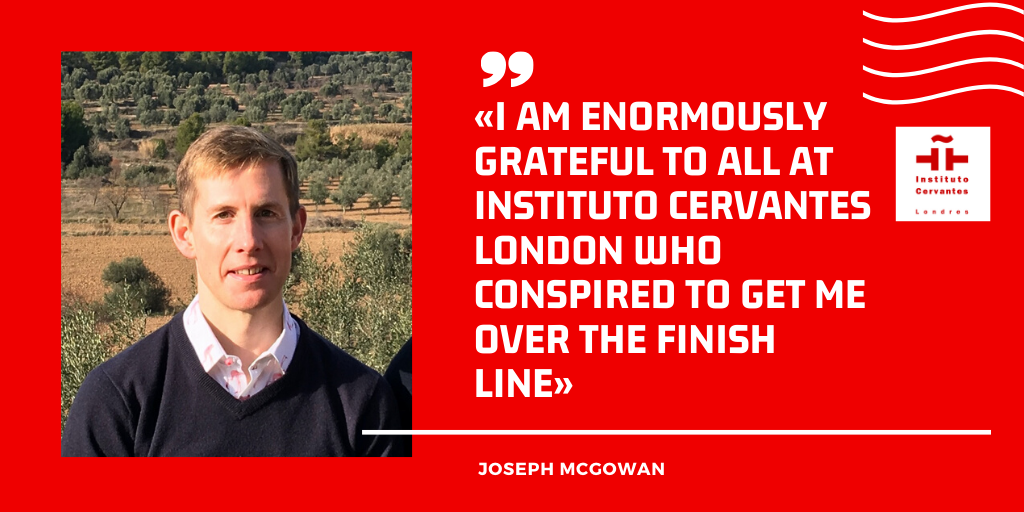«I am enormously grateful to all at Instituto Cervantes London who conspired to get me over the finish line»

Today we chat with one of our students, Joseph McGowan, who just passed DELE C2 exam and previously achieved DELE C1. Joseph has studied Spanish at Instituto Cervantes in London for a long time and he prepared himself for this exam with our teachers. He enjoys learning Spanish every week and travelling to the beautiful Catalonian town of Sitges.
¿Why did you decide to take DELE exam?
I decided to take the DELE exam, not out of any academic, professional or administrative necessity, but simply as a personal challenge. I wanted to learn Spanish, but I knew I had to have a deadline, otherwise I’d pootle along aimlessly. Procrastination is an art form I’ve mastered, so I needed some impetus to turn the desire to learn into a reality. Also, with years of unstructured learning of French under my belt, I knew that the vague target of «I want to speak a language» can be like trying to reach the end of the rainbow: you never quite get there; there’s always a bit further to go. The feeling you can speak a language successfully comes and goes like the weather, depending on mood, physical state, subject-matter, interlocutor, etc. So I wanted an objective and solid milestone by which to measure my progress.-
How was the preparation? What was the most difficult part for you?
Without doubt, the writing was the most difficult element. I was a terrible schoolboy, never did my homework, didn’t take any further exams after my GCSEs, so once again being faced with The Demon Blank Sheet of Paper waiting to be filled was not only an academic but also a psychological barrier to break through. Fortunately I had a fantastic teacher who was extremely patient and generous with her time and effort. She offered to be my sherpa to guide me up the mountain to the exam. And that mountain certainly did seem steep, and rocky. But once I got there, it was amazing to look back and see how far I’d come.

How did the DELE preparation classes at Instituto Cervantes London help you?
As you’ll have gathered, for me the classes were indispensable. Left to my own devices, I could never have passed the C1 and C2 exams. At an advanced level, even in their native tongue, I think someone would struggle to pass a CEFR language exam without preparation. You have to know the format of the exam; for the writing, there are models of text you may not be familiar with; and learning to manage the time in the exam is essential and, at least to me, did not come naturally. My teacher carefully planned each class so there was a progression, which stopped me spending too much time on one particular element at the expense of another. She was there to remind me that you only have to be good enough to pass the exam, there’s no point in trying to exceed the requirements. Of course, perfection is the enemy of good, but it’s sometimes hard to judge alone. In the moments when my determination wobbled and I thought, «Why am I putting myself through this?», I knew I couldn’t let her down and back out now, after we’d both invested so much time and effort.
Looking back, the fact I embarked upon this journey in my 40th year probably isn’t a coincidence. At a time of taking stock of one’s life, it’s not a bad way to live out a mid-life crisis! I am enormously grateful to all at Instituto Cervantes London who conspired to get me over the finish line (twice). The journey is not over, of course — I am now working on Spanish literature with my teacher — but I am very pleased, even proud, to have put those two important milestones behind me.
If you want to take a DELE exam, you can enrol through the online shop of Instituto Cervantes London (CLIC Londres).
These are the upcoming exam sessions at Instituto Cervantes London:
- 11 September (written and oral exam), DELE for Young Learners: Levels A1 and A2/B1
Enrolment deadline 15 July - 11 September (written exam), 11/12 September (oral exam). Level A1, A2, B1, B2, C1, C2
Enrolment deadline 15 July - 13 November (written and oral exam), DELE for Young Learners: Levels A1 and A2/B1
Enrolment deadline 7 October - 14 November (written exam), 13/14 November (oral exam). Levels: A1, A2, B1, B2, C1, C2
Enrolment deadline 7 October


